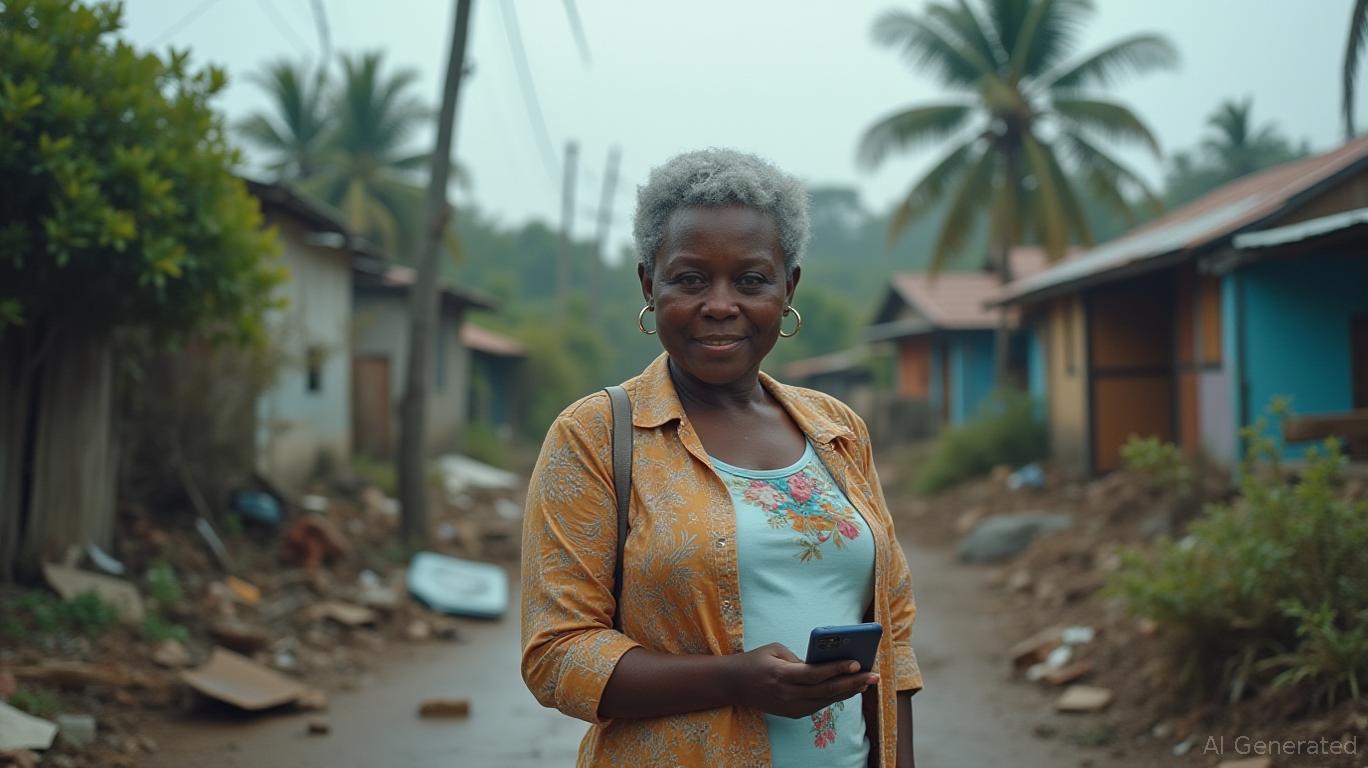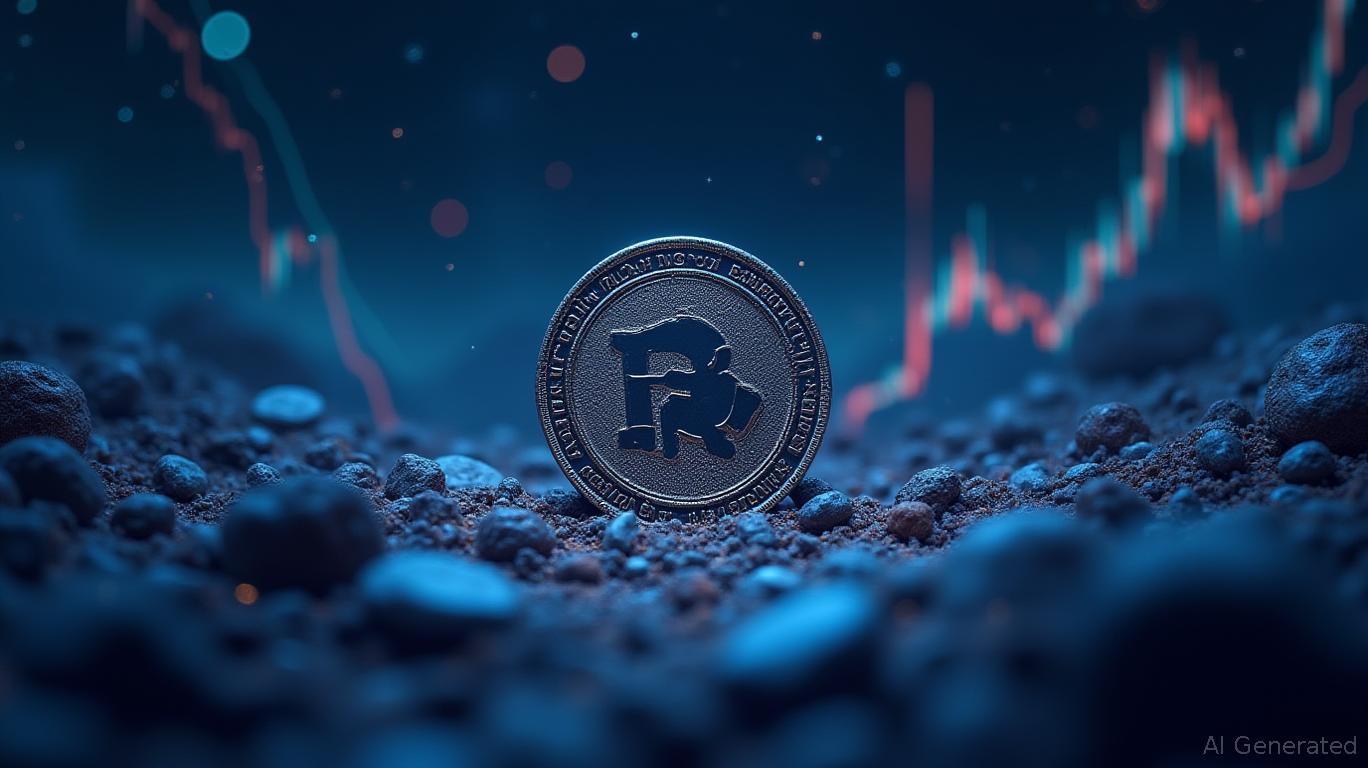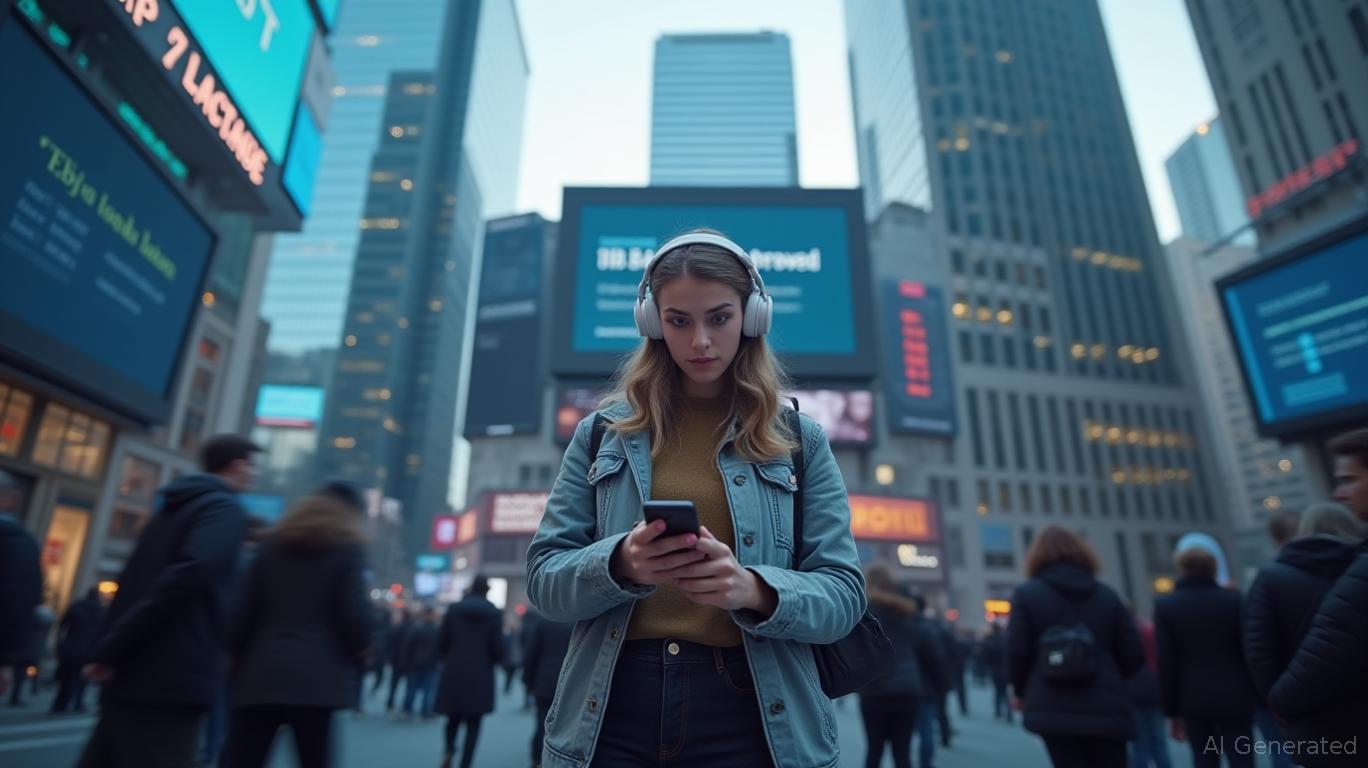Diplomatic Efforts and Technological Advancements Drive Growth in the Luxury Sector Despite Global Political Uncertainty
- Global luxury markets expand via digital innovation, with France's sector projected to grow from $23.75B to $35.97B by 2033, driven by fashion, jewelry, and tourism. - Gulf hospitality boom sees Hilton's Saudi Arabia hotel count surpass 100, while UK-GCC trade talks aim to boost luxury exports by £1.6B annually through diplomatic agreements. - Geopolitical tensions, including Trump's $70B Gaza reconstruction plan facing Gulf resistance and Saudi Arabia's oil price challenges, risk destabilizing cross-bor
The international luxury industry is experiencing notable changes, influenced by evolving consumer tastes, advancements in digital technology, and key economic collaborations. In France, the luxury market is expected to rise from $23.75 billion in 2024 to $35.97 billion by 2033, driven by strong demand for premium fashion, jewelry, beauty products, and a thriving tourism sector, as highlighted in the
Recent diplomatic and economic initiatives between the UK and Gulf states may further strengthen luxury trade. Finance Minister Rachel Reeves is scheduled to participate in Saudi Arabia's Future Investment Initiative (FII) to push forward trade negotiations with the Gulf Cooperation Council (GCC), with the goal of reaching an agreement that could boost the UK economy by £1.6 billion each year, as reported by

At the same time, political instability—especially in the Middle East—continues to introduce uncertainty. Former U.S. President Donald Trump's plan for Gaza's reconstruction, which seeks $70 billion in funding from Gulf countries, has met with hesitation from regional governments reluctant to commit funds without conditions. Saudi Arabia faces limitations due to decreased oil revenues and a move away from direct grants, while the UAE and Qatar are insisting on political assurances and safeguards against future conflicts, according to the
France's luxury industry is also being propelled by digitalization and a focus on sustainability. Leading brands such as Louis Vuitton and Chanel are embracing online sales and environmentally friendly practices to appeal to younger buyers. The country's rich cultural legacy and global brand recognition further reinforce its status as a luxury powerhouse, as outlined in the France luxury goods forecast. Nevertheless, issues like counterfeit goods and economic volatility—especially in developing markets—remain challenges to sustained growth, according to the same forecast.
The Gulf's hospitality boom highlights the region's increasing demand for luxury experiences. Hilton's targeted expansion in both major cities like Riyadh and new destinations signals a broader move toward diversifying Saudi Arabia's tourism sector. With almost two-thirds of Hilton's upcoming projects already under construction, the company is aligning itself with Saudi Arabia's Vision 2030 objectives, as mentioned in the
As the luxury sector continues to change globally, the intersection of economic diplomacy, shifting consumer trends, and geopolitical stability will determine future prospects. The UK's efforts to expand trade with the Gulf, France's positive luxury outlook, and the Middle East's hospitality surge all point to a world where luxury industries are increasingly connected to larger economic and political developments.
Disclaimer: The content of this article solely reflects the author's opinion and does not represent the platform in any capacity. This article is not intended to serve as a reference for making investment decisions.
You may also like
Caribbean Prepares for Hurricane as Geopolitical Strains and Reductions in Food Assistance Loom
- Hurricane Melissa, a Category 4 storm, threatens Jamaica with catastrophic flooding and landslides as it intensifies before landfall. - U.S.-Trinidad military drills face Venezuela's "false-flag" accusations, highlighting regional tensions amid natural disaster preparations. - Trump administration's Nov. 1 food aid cuts draw bipartisan criticism, forcing states to redirect SNAP recipients amid hurricane supply chain risks. - U.S.-China trade talks aim to avoid tariffs over rare earths, while Canada faces

Bitchat's Bluetooth system remains robust while hurricanes severely damage Jamaica's infrastructure
- Bitchat, a Bluetooth-based decentralized messaging app, became Jamaica's second-most downloaded app as Hurricane Melissa crippled infrastructure with 185-mph winds. - The storm killed 30+ people across the Caribbean, including 23 in Haiti, while the app enabled encrypted communication during power outages and flooding. - Bitchat's surge mirrored crisis adoption in Nepal, Indonesia, and Madagascar, highlighting its utility in disaster zones with decentralized, censorship-resistant networks. - The Trump ad

MoonBull's Scarcity Approach Surpasses TON, LINK's Lackluster Progress
- MoonBull's presale raised $450k from 1,500+ investors, projecting 9,256% returns if tokens hit $0.00616. - Outpaces stagnant TON and LINK amid market volatility, leveraging 23-stage pricing and 95% APY staking. - Mobunomics allocates 73.2B tokens with 50% presale scarcity and 11% referral incentives to boost adoption. - Meme-driven narrative combines viral marketing with utility, attracting both retail and institutional investors. - Stage 5 marks final entry before listing, with escalating prices and lim

HBAR ETF Gets Green Light, But Convincing Altcoin Doubters Remains Challenging
- Hedera's HBAR token dropped 6% post-ETF approval, contrasting with Solana's $56M debut volume. - The $8M HBAR ETF launch highlights altcoin market skepticism despite regulatory progress and institutional backing. - Technical indicators like death cross and declining on-chain metrics signal bearish momentum for HBAR. - Analysts note ETFs provide regulated institutional access, though broader crypto volatility and SEC delays dampen immediate adoption. - Hedera's enterprise partnerships and USDC growth on i
